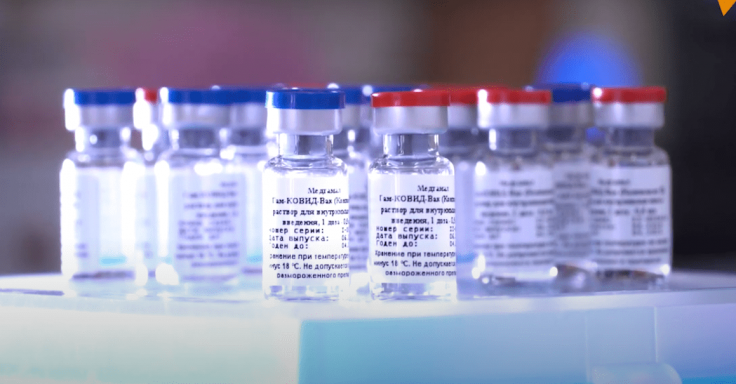The first batch of the Sputnik V vaccine to fight COVID-19 has been released into civil circulation with deliveries expected to start soon, the Russian health ministry confirmed in a statement on Tuesday.
"The first batch of the vaccine for preventing the novel coronavirus infection, Gam-COVID-Vac (Sputnik V) developed by the Gamaleya Research Institute of Epidemiology and Microbiology of the Russian Health Ministry passed the required quality tests in the laboratories of Roszdravnadzor (the Federal Service for Surveillance in Healthcare) and was produced for civilian circulation. In the near future the supplies of the first batches of the vaccine to the regions are expected," the ministry said in its statement.
Named Sputnik V as a homage to the world's first artificial Earth satellite launched by the Soviet Union in 1957, the vaccine was registered on August 11, making it the world's first vaccine against the deadly coronavirus that has infected more than 27 million and killed 890,000 people around the world.
Who Will Get it First?

Last week, Russian Health Minister Mikhail Murashko announced that medical professionals and teachers, which are described as citizens from high-risk groups, will be the first to get the COVID-19 vaccine.
"We will begin the stage-by-stage civilian use of the vaccine. First and foremost, we would like to offer vaccination to those who come into contact with infected persons at work. These are medical workers. And also those who are responsible for children's health - teachers," the minister said, as reported by Russian news agency TASS.
Is it Safe for Use?
The first results of the vaccine trial concluded that it triggered an antibody response and had no noticeable side effects. As reported in The Lancet trials conducted in June and July on a total of 76 healthy people aged between 18 and 60 at two hospitals in Moscow suggested that there were no serious adverse effects after 42 days and the vaccine managed to produce antibodies in all participants within 21 days.
The global race to find a viable coronavirus vaccine is well under away, but there are fears that scientists are being forced to rush development for the sake of national pride, geopolitical gain, and profit. President Vladimir Putin bragged last month that the Russian vaccine was a "world-first" and that it had been approved for use by the regulators in Russia. He even claimed his daughter had received the vaccine.
However, while the results are encouraging, experts are warning that the vaccine still needs further work before it is mass-produced and rolled out to the general population. Dr. Anthony Fauci, director of the US National Institute of Allergy and Infectious Diseases, also expressed his skepticism by saying he "serious doubts" that the vaccine is safe and effective.









